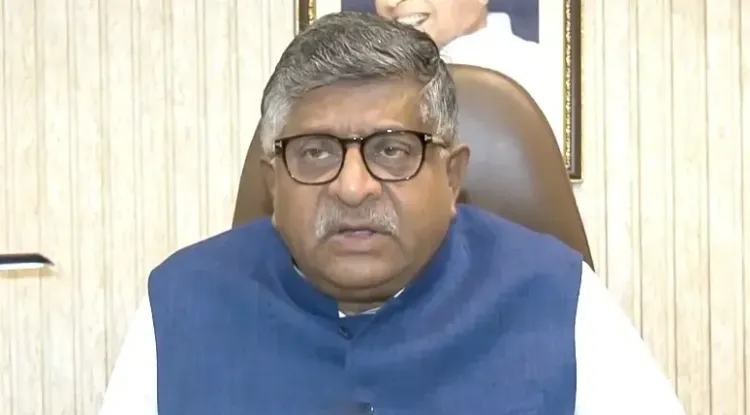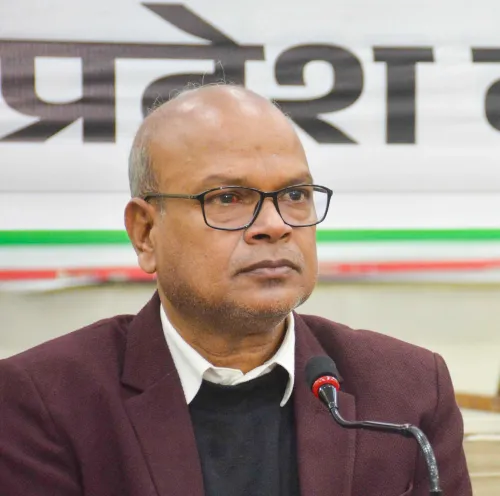Is the RJD's Allegation of Power Disconnection at Polling Booths Justified?

Synopsis
Key Takeaways
- RJD's allegations of power disconnection are contested.
- Voter turnout reflects public engagement in elections.
- Initial election phase is vital for political alliances.
- Transparency in elections is critical for democracy.
- Political tensions can influence electoral strategies.
Patna, Nov 6 (NationPress) BJP MP Ravi Shankar Prasad strongly criticized the RJD for its claims that power supply was intentionally cut off at numerous polling booths during the ongoing Bihar Assembly elections. He described the allegations as “groundless and deceptive,” and questioned if the RJD has already conceded defeat.
In an interview with IANS, Prasad remarked, “What has happened to the RJD? Have they already accepted defeat? Now they are shouting that voting was slowed down, electricity was cut, and the Election Commission acted against them. There is no proof, no evidence — yet they have started crying foul. They are leaving the field even before voting is completed, which is wrong.”
He continued, “It is clear that they are losing. But before losing, why are they quitting the contest? That is wrong. Voters are coming out to cast their votes enthusiastically, so no one will believe such baseless claims. Those who were claiming they would form the government have already accepted defeat. What does this mean? Their allegations are baseless and misleading.”
The initial phase of the Bihar Assembly elections commenced with more than 3.75 crore voters eligible to cast their votes in 121 of the 243 constituencies in the state. Polling began at 7 a.m. and continued until 5 p.m. across 45,341 polling stations. According to Bihar’s Chief Electoral Officer, voter turnout was recorded at 53.77 percent by 3 p.m., with Begusarai district achieving the highest turnout at 59.82 percent.
This first phase is particularly significant for the Opposition Mahagathbandhan (Grand Alliance), which had won 63 of these 121 seats in the previous 2020 elections. The ruling National Democratic Alliance (NDA), comprising the Bharatiya Janata Party (BJP) and the Janata Dal (United) or JD(U), had secured 55 seats in these same constituencies.
The phase is also crucial for smaller allies on both sides. The Communist Party of India (Marxist–Leninist) [CPI(ML)], which had one of the highest success rates in the 2020 elections, is contesting 20 seats overall, with 10 of them in this round. The CPI(ML) currently holds six of these seats, making this phase essential for sustaining its electoral momentum.
Within the NDA, the Lok Janshakti Party (Ram Vilas) [LJP(RV)], led by Chirag Paswan, is contesting 29 seats across Bihar, including 10 in this initial phase.
Interestingly, the NDA currently controls only one of these ten seats. The LJP(RV)’s distribution of seats has previously led to tensions within the alliance, especially with the JD(U), which believed the allocation was disproportionate to the LJP(RV)’s existing Assembly strength.










